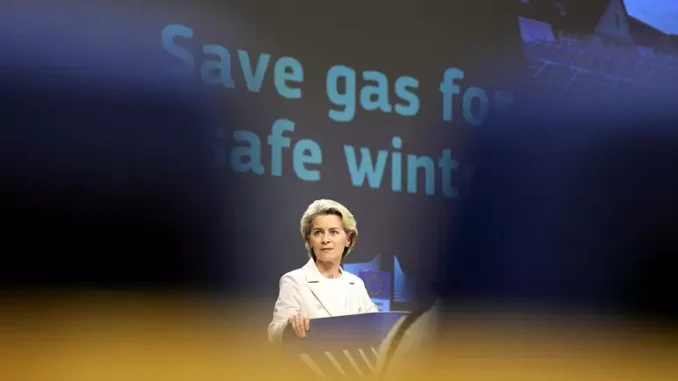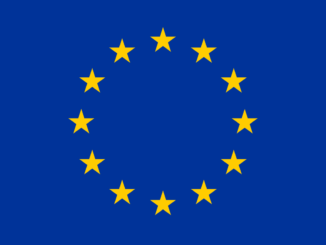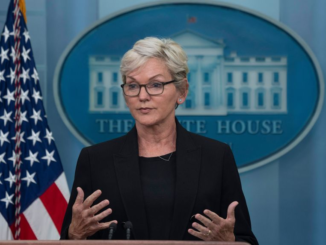
Opposition is growing against the European Commission’s proposed plan to voluntarily reduce gas consumption by 15% from now until next spring, with Southern countries leading the charge.
National ministers are set to meet tomorrow in Brussels to discuss the plan, which is certain to be subject to multiple amendments coming from different fronts.
“The Commission’s proposal is not necessarily the most effective nor the most efficient nor the most just,” said Teresa Ribera, the Spanish minister for the ecological transition.
“Spain is a pro-European country,” she added. “So it is therefore with the deepest regret that I say Spain doesn’t support this proposal.”
Her Greek counterpart, Kostas Skrekas, also raised concerns, in particular about the horizontal 15% reduction target, while João Galamba, Portugal’s secretary of state for environment and energy, called the plan “unsustainable” and “disproportionate.”
Since the Kremlin launched the invasion of Ukraine, 12 EU countries have suffered total or partial interruptions of gas supplies by Gazprom, the state-owned energy multinational that enjoys exclusive rights over Russia’s pipeline infrastructure.
The cut-offs are seen as retaliation for the increasing number of Western sanctions slapped on Russia.
With prices spiralling out of control and supplies dwindling with each passing day, the Commission last week unveiled a plan to decrease gas consumption across the bloc by 15% between August and March in a bid to prevent the worst damage from Russia’s continued manipulation of energy supplies.
Businesses, public buildings and private households will all be asked to contribute to the collective undertaking, which could help save up to 45 billion cubic metres (bcm) of gas.
This first phase will be voluntary, based on coordination, fuel switching, temperature limits and information campaigns. But in the event of a drastic or complete reduction in Russian gas, the 15% target will become mandatory under a “Union Alert” system.
This will open the door for rationing across the bloc, forcing hand-picked energy-intensive factories to shut down for a certain period of time. Households and essential services, such as hospitals and schools, will remain spared – unless the crisis turns desperate.
“Russia is blackmailing us. Russia is using energy as a weapon,” said EU Commission President Ursula von der Leyen while unveiling the proposal, dubbed “save gas for safe winter.”
Von der Leyen’s team is trying to approve the plan under a fast-tracked procedure that completely bypasses the European Parliament and simply requires a qualified majority by member states.
But her blueprint is now under intense scrutiny by capitals and risks being buried under an avalanche of amendments and tweaks aimed at curbing what many see as a power grab by Brussels.
‘Cacophonic situation’
Speaking to Euronews under the condition of anonymity, diplomats and officials paint a picture of rushed and tense behind-the-scenes negotiations in the lead-up to Tuesday’s meeting, where ministers will try to find a delicate compromise among the diverging positions.
“Over the weekend, it was a cacophonic situation,” said a diplomat from a Southern country who is “quite critical” about the Commission’s proposal. “But we are still positive and optimistic.”
“When it comes to the general mood, I can describe it as a total mess,” said another diplomat from an Eastern member state. “The situation is dynamic.”
The two main sticking points appear to be the 15% reduction target and the Union Alert system.
On the first one, a group of countries, led by the South, complain the number fails to take into account national circumstances. The EU’s energy mix is far from homogenous: countries use renewables, nuclear power and fossil fuels in varying degrees according to their geography, economy and political priorities.
For example, Spain has a wide network of terminals along its coastline that allows for greater imports of liquefied natural gas (LNG) from a variety of suppliers, while Germany is still overly dependent on Nord Stream 1, the massive pipeline that feeds Russian gas directly into the country.
A diplomat from a country that is in a similar situation to Germany’s stressed the importance to find a “common joint approach” and said no member state was against the principle of solidarity, which underpins the Commission’s entire plan.
The executive argues decreasing gas consumption is an expression of solidarity because the single market – and, by extension, all 27 EU countries – are threatened by the Kremlin’s energy manipulation.
This is why, the reasoning goes, each and every state should pursue the same uniform 15% reduction target.
A Nordic official said the 15% objective was acceptable but will probably become more “flexible” to better reflect each country’s peculiarities.
The Commission’s plan also envisions solidarity measures to help out neighbouring states that are under strain, although this will be contingent upon bilateral arrangements between governments.
Germany has already signed so-called solidarity agreements with Austria, the Czech Republic and Denmark, and urged others to follow suit.
“European solidarity is more important than ever in these times,” Robert Habeck, Germany’s vice-president in charge of climate action, said last week in reaction to the Commission’s plan, which he welcomed. “We all need to work on this with all our might.”
But not everybody is on the same page.
“While coordination in the spirit of solidarity is indispensable, it cannot be used as a tool for ‘mutualising the consequences’ of prolonged, systematic over-dependence of some countries on Russian gas and lack of investments in diversification,” said the Eastern European diplomat.
The comments echo those voiced last week by Spain’s Teresa Ribera.
“Unlike other countries, the Spanish population has not lived above our means from an energy standpoint,” the minister said.
A greater say
The second main sticking point in negotiations is the Union Alert system, under which the Commission will be empowered to turn the voluntary 15% reduction into compulsory action across the bloc in the event of a severe gas shortage or exceptionally high demand.
The executive wants to activate the unprecedented mechanism at its own initiative or following the request of three member states. It will consult the EU Council but without requiring its endorsement.
This activation procedure appears to be dead on arrival, diplomats said.
A large number of countries is pushing back to ensure the Council has a greater say. The latest proposal suggests ministers will have to approve by a qualified majority the activation of the Union Alert system. The minimum number of countries who can request the trigger will be increased from three to five.
Some governments are also trying to secure exemptions and carve-outs from the binding system to protect sensitive industries that might fall under rationing. Coastal countries endowed with LNG terminals argue they deserve to be completely excused from any mandatory or solidarity measure.
Greek Energy Minister Kostas Skrekas has already warned most of the gas used by his country goes into electricity generation and that any extra cuts would likely hit private households, even if Brussels insists they will remain protected.
“Some member states are not really happy about the exemptions,” said an official from a Western European country, without naming them. “Discussions are constructive. The plan is an important political signal.”
Despite the mounting criticism, diplomats said an outright rejection of the Commission’s proposal was off the table and the urgent need to have a coordinated plan of action will eventually prevail.
“We’re open to solutions,” said the Southern European diplomat.
The burden now falls on the Czech Republic, who, as the current holder of the EU Council’s rotating presidency, will be tasked with steering the discussions and finding an agreement that addresses everybody’s concerns, while making sure the final watered-down product does not render the whole plan useless.
The Czech presidency intends to add exemptions and carve-outs to the 15% target that “make sense” and are based on broad industrial sectors, rather than on national concerns, Euronews understands.
Ambassadors have been discussing the Commission’s draft since it was presented on Wednesday and have gathered several times to exchange views. Amendments were still being introduced on Monday afternoon.
“We want to keep the ambition to the maximum possible extent,” said a EU official with knowledge of the ongoing negotiations. “There is no Plan B. We’re going all in.”
Source: Euronews.com



